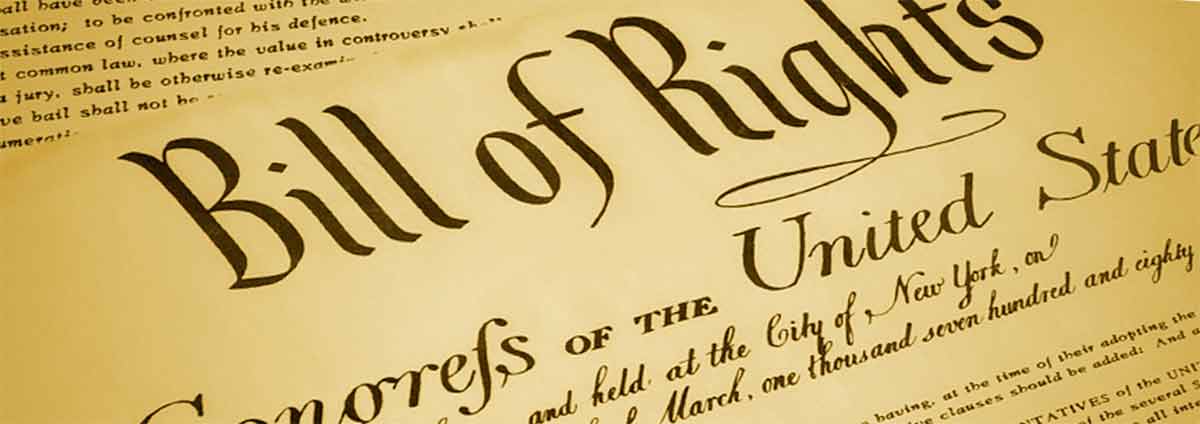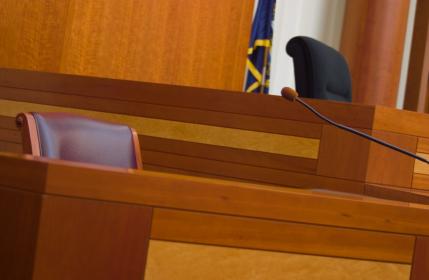Constitutional Right to Confront Witnesses
There is a Constitutional Right to Confront Witnesses Against You in Criminal Cases

Right to Confront Witnesses
What is the right to confront witnesses? Why is this right essential in the criminal justice system?
The right to confront witnesses is a fundamental aspect of the American legal system, enshrined in the Sixth Amendment of the U.S. Constitution, which guarantees that, in all criminal prosecutions, the accused shall enjoy the right to be confronted with the witnesses against them. This right, commonly referred to as the Confrontation Clause, ensures that defendants have the opportunity to cross-examine the prosecution’s witnesses in the presence of a judge and jury. This means that witnesses must testify in person and undergo direct questioning by the defense, allowing for an assessment of the witness’s credibility and the reliability of their testimony.
The significance of this right within the criminal justice system cannot be overstated. It is essential for ensuring a fair trial, as it prevents the admission of hearsay or secondhand evidence without the opportunity for the defendant to challenge its veracity. The ability to question witnesses helps uncover the truth by testing the consistency and honesty of their testimonies and exposing any weaknesses or biases in their accounts. Furthermore, it empowers the accused by giving them a direct role in their defense, allowing them and their attorneys to actively engage with and respond to the evidence presented against them. Thus, the right to confront witnesses is not only a protective legal mechanism but also a crucial element of procedural justice, ensuring that trials are both fair and transparent.
Court’s Are Chipping Away at Our Constitutional Rights
In the case of Ohio v Clark, decided in June 2015, the United States Supreme Court decided that the hearsay testimony of a 3-year-old identifying Clark as the person who caused his injuries was admissible in Mr. Clark’s trial. The state court’s decision that the hearsay testimony violated Clark’s constitutional right to confront witnesses against him. The United States Supreme Court reversed the state court, deciding that statements made to non-law enforcement people, such as teachers, did not carry the same concerns under the Confrontation Clause analysis and were generally not likely to be considered testimonial due to the informality of the situation. The Court also stated that the primary purpose of the questioning by the teacher was not testimonial, but to deal with a potential emergency and to protect the child.
A Great Michigan Criminal Defense Attorney Will Help Protect You Against Abuses of Your Constitutional Rights.
The Constitution contains the framework for the laws and operation of the United States. The United States Supreme Court is tasked with interpreting the Constitution regarding a particular set of circumstances. In a criminal case, the right to confront witnesses against you is paramount. A person must be able to question that person and test their credibility through testimony and cross-examination. It is tempting to think that putting a 3-year-old through that process is unfair. However, courts have devised ways to make that process less stressful for a child while still protecting constitutional rights. The decision in Ohio v Clark is a bad one. Because courts will not twist themselves in a knot to protect your rights, you want the best criminal defense lawyer you can get to protect and defend you in court.
If my accuser fails to appear, what happens with my case?
In Michigan (and in the United States), someone accused of a felony or misdemeanor has the right to confront their accuser in court. The defendant’s right to confront their accuser is enforceable at any hearing where the complainant or witness is subpoenaed to appear and testify. Examples of hearings when a witness or complainant is subpoenaed to testify include a preliminary examination or trial. If a subpoenaed witness fails to appear, the defendant might be able to move for dismissal of the charges.
When a key witness does not show up in court despite being legally required to do so, it can significantly impact the prosecution’s ability to present its case. Under these circumstances, the defense can argue that the absence of the witness deprives the defendant of their constitutional right to confrontation. This right is crucial as it allows the defense to cross-examine the prosecution’s witnesses and challenge the evidence presented against the defendant.
However, whether the charges will be dismissed due to a witness’s nonappearance depends on several factors. The court will consider the importance of the absent witness’s testimony to the overall case. If the testimony is deemed essential—with no other evidence sufficiently establishing the facts—the court may find it unfair to proceed without giving the defendant the opportunity to confront the witness. In such cases, the defense can file a motion to dismiss the charges.
Moreover, the court will also look into the reasons behind the witness’s absence. If the prosecution shows that the witness’s absence is temporary and they have made substantial efforts to ensure the witness’s future presence, the judge might decide to adjourn or delay the proceedings rather than dismiss the case outright. This is often the case if the witness is considered crucial to the prosecution’s case or if there is a reasonable expectation that the witness can be compelled to attend at a later date.
Therefore, while the failure of a subpoenaed witness to appear can potentially lead to a dismissal of charges, it is not automatic. The decision ultimately rests on the court’s evaluation of how critical the witness is to the prosecution’s case and the likelihood of getting the witness to testify at a future date. Many defense lawyers are too intimidated by judges and prosecutors to fight for dismissal of charges when a witness fails to appear. They feel compelled to capitulate to an adjournment rather than fight for their client’s right to confront witnesses. The aggressive and experienced defense lawyers with LEWIS & DICKSTEIN, P.L.L.C. are never too intimidated to fight for the best possible outcome, including demanding dismissal of charges when appropriate.

The premier Michigan Criminal Defense Law Firm to Protect You and Your Constitutional Rights.
The Michigan criminal defense attorneys of LEWIS & DICKSTEIN, P.L.L.C. are part of one of the few law firms that specialize in only defending people charged with criminal offenses. The attorneys at LEWIS & DICKSTEIN, P.L.L.C. are laser-focused and passionate about protecting people facing criminal charges. Its attorneys are the ones you want standing next to you in a courtroom when your freedom is at stake. The firm takes great pride in its record of success and protecting our client’s right to confront witnesses. Prosecutors do not want to see an attorney from LEWIS & DICKSTEIN, P.L.L.C. on the other side of a case because that means that it will not be easy for them. Our attorneys come prepared and come to win.
Call us today at (248) 263-6800 for a free consultation or complete an online Request for Assistance Form. We will contact you promptly and find a way to help you.














